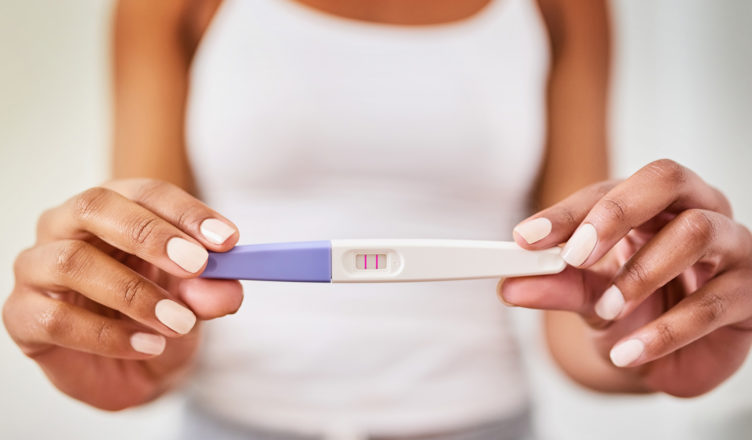Pregnancy is an adventure for all couples regardless of age and experience. After the first pregnancy, mothers become more confident, but those who are expecting their first child need comprehensive and detailed information in early pregnancy to be able to prepare and go through this important phase of life with ease.
Am I pregnant?
The signs of pregnancy are usually different in every woman. Early pregnancy is most often associated with nausea, vomiting, increased appetite, and sensitive nipples due to hormonal changes. Of course, there are many other signs that you are expecting a baby, but since the signs of pregnancy may be more or less pronounced in different women, we advise you if you have any doubts visit your obstetrician-gynecologist to examine you. and do an ultrasound examination.
Beginning of pregnancy
After noticing the first signs, women visit an obstetrician-gynecologist, who prescribes a blood test for pregnancy and confirms the pregnancy. At this first examination, the doctor determines how the pregnancy is progressing and sets a due date. Pregnant women often suffer from nausea, especially in the first months, but this is often not a cause for concern.
The female body begins to change extremely quickly in the first trimester, and the needs of the body change. The need for vitamins and iron, as well as the need for magnesium and calcium increases. Iron is responsible for carrying oxygen in the blood, as well as for the synthesis of hemoglobin and the formation of red blood cells (erythrocytes). Magnesium helps the proper functioning of the nervous system and reduces the risk of painful muscle contractions. The body needs increased amounts of folic acid, which is important for the hematopoiesis and closure of the neural tube in the embryo. Iodine importantly works for the normal functioning of the thyroid gland. The intake of calcium, in addition to filling calcium deposits in the Mother tongue’s maintenance organism, has a protective effect on the risk of high blood pressure in pregnancy.
Although not visible on the outside, the body has entered a different mode and is already working at high speeds. Pregnant women often change their mood and this is explained by the many hormonal changes during this period.
At the end of the third month, the first prenatal examinations are performed. Additional tests of amniotic fluid and blood can provide information about various diseases. If future parents wish to perform these tests, they should consult the supervising obstetrician-gynecologist.
The body changes
At 9 to 16 weeks of pregnancy, the body begins to adjust. The abdomen begins to grow, but not so much as to impede movement and sleep. By the end of the first trimester, the risk of miscarriage decreases. At the second examination, the gynecologist examines the heart rhythm and the growth of the embryo by ultrasound.
It is important to know that if any medical problems occur, medications should only be taken after consulting a doctor. It is recommended to visit a dentist during this period, as the teeth are particularly sensitive and need more attention.
If you wish, you can enroll in a course for future parents and attend gymnastics for pregnant women. Gymnastics for pregnant women is especially useful because it prepares the body for childbirth and can prevent some physical problems associated with pregnancy.
Shaped belly
From the 17th week of pregnancy, you can no longer hide from anyone that you are expecting a child. Pregnancy is clear from the growth of the abdomen. During this period, pregnant women often suffer from heartburn, due to increased pressure on the stomach. Frequent urination also worries many women. It can be controlled by actively training the pelvic floor muscles with special exercises.
From the middle of pregnancy, you may notice that the stomach occasionally becomes hard and that the muscles of the uterus contract. This is normal because the body is preparing for childbirth, but if these symptoms are too common or severe, it is a good idea to consult your gynecologist to prevent premature birth.
Between 19 and 22 weeks of pregnancy, a second ultrasound is performed, in which you can find out the sex of the baby if the position allows. From the 20th week of pregnancy, the mother feels the movements of the fetus and this helps to form an even stronger bond between mother and child.
The secret lies in peace
The growing abdomen restricts the mother’s ability to move freely after 25 weeks of pregnancy. Performing daily activities becomes more difficult from this point on. You need to reduce the load and give your body the necessary rest. The uterus prepares for childbirth, and the breast for milk production, and the frequency of urination increases. Many women suffer from shortness of breath, back pain, and chest tightness. Even falling asleep becomes difficult due to the inability to find a comfortable position.
If you are worried and insecure about giving birth, talk to your doctor, talk to other mothers, or take a pregnancy course. If you have not yet chosen the place where you will give birth, now is the time to do so.
If you want to preserve valuable stem cells from the placenta and umbilical cord blood, you can find out if this service is available at your hospital. Stem cells could be used to treat some serious diseases.
The big day is approaching
The period between 33 and 40 weeks of pregnancy seems endless to many women, not only due to the fact that everyday life with a growing baby in the womb becomes quite difficult but also due to the impatience for the first meeting with the child. During this period, it is good to visit your gynecologist in about 2 weeks. The size and position of the child are monitored during the examinations. When the baby turns and descends into the uterus, the time of birth is approaching. In this position, the child has less freedom, and the mother has to suffer a little more from the sweet feet.
Often during this period, water retention causes swelling in the legs.
You have to make the final preparations for childbirth, to prepare the documents necessary for hospital admission and maternity insurance. The long-awaited moment has almost come!







